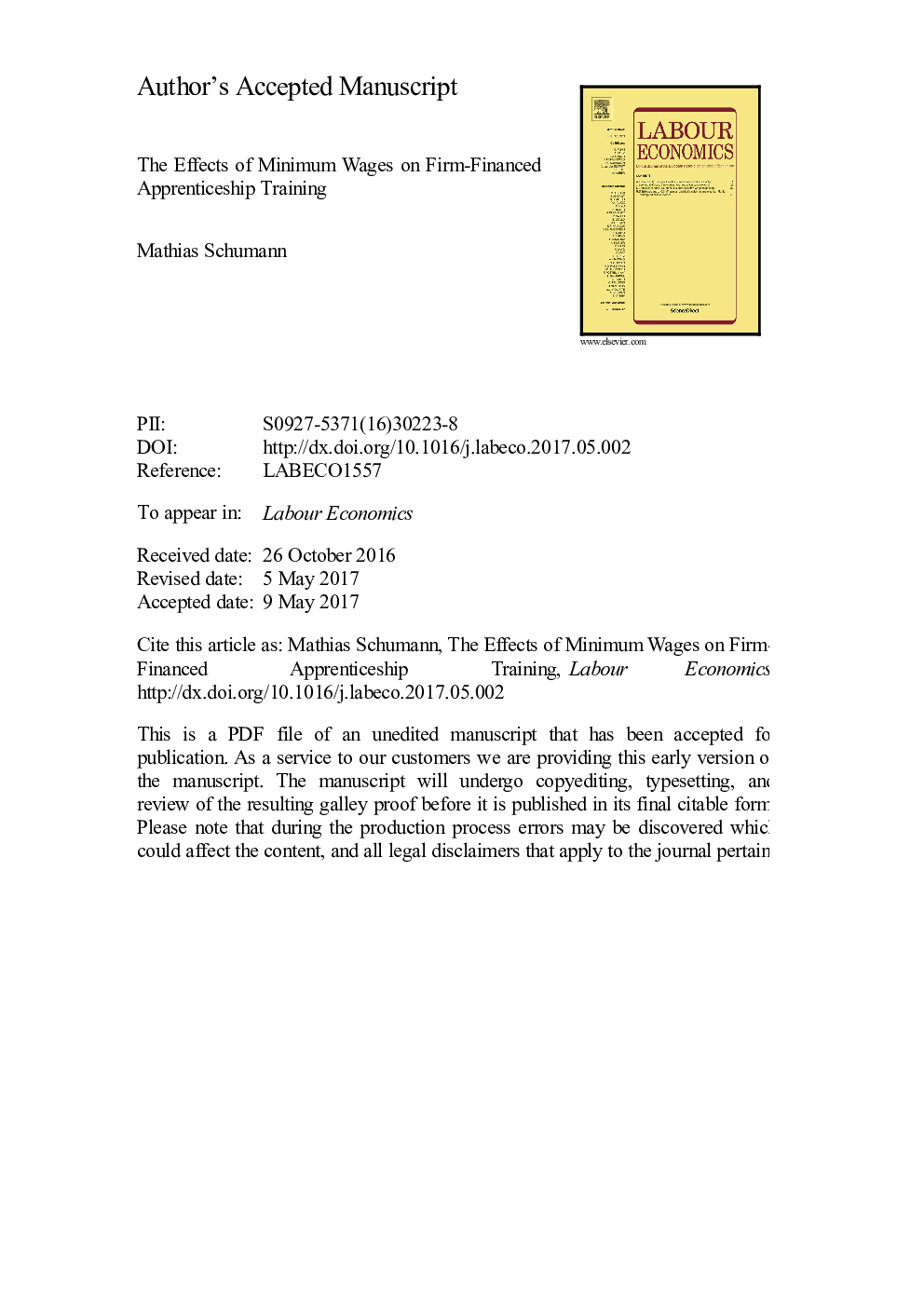| Article ID | Journal | Published Year | Pages | File Type |
|---|---|---|---|---|
| 5102014 | Labour Economics | 2017 | 64 Pages |
Abstract
This study analyzes the short-term effects of the minimum wage introduction on firm-provided apprenticeship training in the main construction sector in Germany. While the minimum wage was binding for regular blue-collar workers, apprentices were exempt. The analysis is based on a large administrative firm-level data set. The results of difference-in-differences and synthetic control estimations show that the minimum wage decreased both a firm's likelihood to train new apprentices and number of new apprentices. This study provides evidence that minimum wages deter firms from financing training in general skills when labor turnover is high and that firm training is a minimum wage channel of adjustment.
Keywords
Related Topics
Social Sciences and Humanities
Economics, Econometrics and Finance
Economics and Econometrics
Authors
Mathias Schumann,
